“The program has absolutely made a difference for our clinic and patients. Patients wanted long-term contraception and were surprised that there was an option available to them free of charge.” – Michelle Hubbard, Dream Centers Women’s Clinic
Without insurance coverage, the cost of birth control can be unaffordable. At Medicines360, our mission is to remove cost as a barrier to health by developing and providing affordable women’s health products. We make our anchor product available at a price that is a discount to the 340B ceiling price to clinics participating in the 340B Drug Pricing Program. However, not all safety-net clinics can access 340B pricing.
In 2018, to expand access to hormonal IUDs among safety-net clinics that cannot access 340B pricing, Medicines360 partnered with Direct Relief, a humanitarian aid organization, to establish the IUD Access Partnership, an institutional patient assistance program (IPAP). IPAPs provide prescription drugs free of charge to participating safety-net clinics via bulk shipments. Clinics that are eligible to participate in the IUD Access Partnership must serve low-income clients and may not purchase product through the 340B program.
We recently spoke to providers at two of the 32 clinics participating in the IUD Access Partnership. Both are free clinics [i] and serve primarily uninsured patients, many of whom are undocumented immigrants.
- Dream Centers Women’s Clinic in Colorado Springsis one of the only free clinics that focuses on women’s health in the state. We spoke with Michelle Hubbard, Clinic Operations Director.
- Volunteers in Medicine of Southern Nevada (VMSN) in Las Vegas provides free primary and several specialty health care services to approximately 60 patients per day. We spoke with Desiree Zapinsky, Medical Practice Manager, and Yonnabelyn Arteaga, Family Planning Medical Assistant.
Both clinics are only able to offer contraception through patient assistance programs, and as such, are limited in the range of birth control methods that they can provide onsite. Dream Centers is only able to provide oral contraceptive pills and our anchor product, while VMSN provides those two methods plus the injectable contraceptive. Hubbard and Arteaga described counseling patients on the full range of contraceptive methods, but then having to refer patients to other clinics, such as the local health departments, for most of those methods.
Hubbard said, “It’s hard to tell the patients that they need to go to another clinic. Many of our patients feel that they are served badly elsewhere, especially if there are language barriers. They feel safe and cared for with us and may not follow through on referrals to other clinics.”
Hubbard explained that when she and her colleagues learned about the IUD Access Partnership, “We didn’t have to think about saying yes, it was just, ‘How do we do it?’ This IPAP allows us to give our patients another option.”
Traditional patient assistance programs require patients to apply individually then wait to receive their prescribed drugs. In contrast, IPAPs such as the IUD Access Partnership enroll entire clinics, allowing clinics to keep product in stock and available for immediate dispensing to eligible patients. This process reduces paperwork for the clinic and the need for a return visit, which is often prohibitively expensive and inconvenient for low-income patients. Direct Relief replenishes the participating clinics’ stocks as needed.
VSMN used a traditional patient assistance program before switching to the IPAP from Medicines360 and Direct Relief. Arteaga explained the advantage of an IPAP such as the IUD Access Partnership over traditional patient assistance programs: “With the previous program, we helped our patients fill out the application, but the approval process could take a month or more. Now we have hormonal IUDs in stock and, if our gynecologist is in the clinic, we can insert the IUD the same day. It is a lot more convenient for us and the patient.”
In its first year participating in the IUD Access Partnership, Dream Centers received 48 hormonal IUDs. Since VMSN joined the IPAP in June 2019, it has received 34 units. The IUD Access Partnership has distributed 716 units since the program started.
Both Dream Centers and VMSN had strong relationships with Direct Relief before enrolling in the IUD Access Partnership. Medicines360 is pleased to work with Direct Relief and grateful to the participating clinics for the care that they provide to patients.
[i] Free and Charitable Clinics are a sub-set of the U.S. healthcare “safety-net.” These organizations utilize a volunteer/staff model to provide a range of medical, dental, pharmacy, vision and/or behavioral health services and restrict eligibility for these services to individuals who are uninsured, underinsured and/or have limited or no access to primary, specialty or prescription healthcare.

